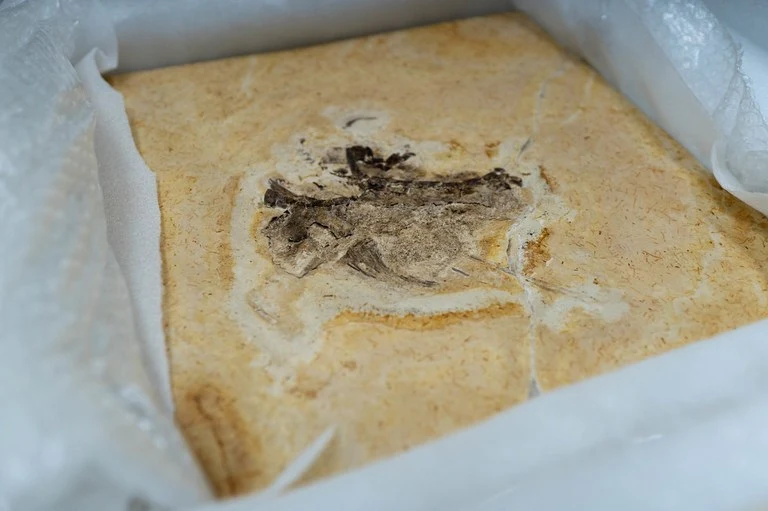
Courtesy Brazilian Ministry of Science, Technology and Innovation.
A rare dinosaur fossil discovered in northeastern Brazil in 1990 that is thought to have been illegally exported to Germany has been returned after a three-year standoff between the Brazilian scientific community and Germany’s State Museum of Natural History Karlsruhe, according to a statement fromInácio Arruda, the secretary of Brazil’s Science and Technology for Social Development
The 120-million-year-old Ubirajara jubatus specimen was a mystery when it was first discovered in the state of Ceara. Scientists had never seen a fossil with a similar feathered covering and “pointed rods” sprouting from the animal’s shoulders. More mysterious still was how the specimen wound up in the Museum of Natural History Karlsruhe’s collection five years after it was discovered, as commercially exporting fossils from Brazil has been illegal since 1942.
A paper published in 2020 helped clear some of the fossil’s mystique, but it also drew the attention and ire of Brazil’s scientific community, which claimed the remains had been illegally exported from the country. Soon the hashtag #UbirajaraBelongstoBR began trending on social media and a paleontological problem had suddenly turned political.
The German scientists who published their research on the 4 and a half-foot-long Ubirajara jubatus claimed the specimen was transferred to the museum “after receiving proper authorization from Brazilian officials.” Their Brazilian counterparts claimed the fossil’s provenance was sketchy at best.
“We spared no effort to make Ubirajara’s return possible,” Inácio Arruda, the secretary of Brazil’s Science and Technology for Social Development, said in a statement. “Without the mobilization of the Brazilian scientific community, we would not have been successful. The German government was sensitive to our request and, all together, we achieved this victory.”


